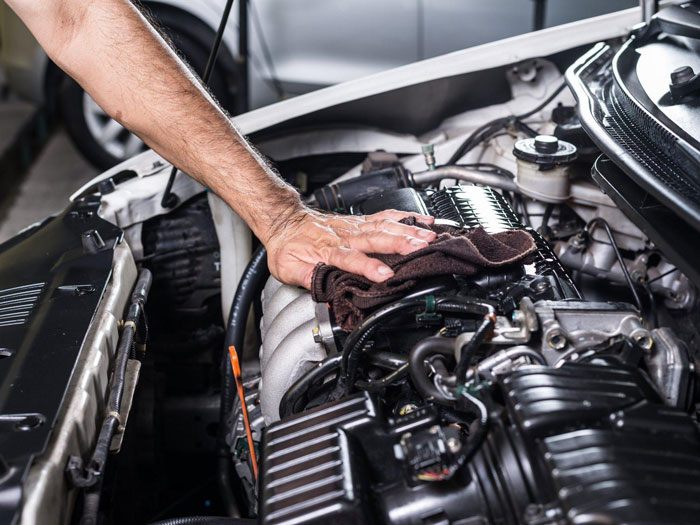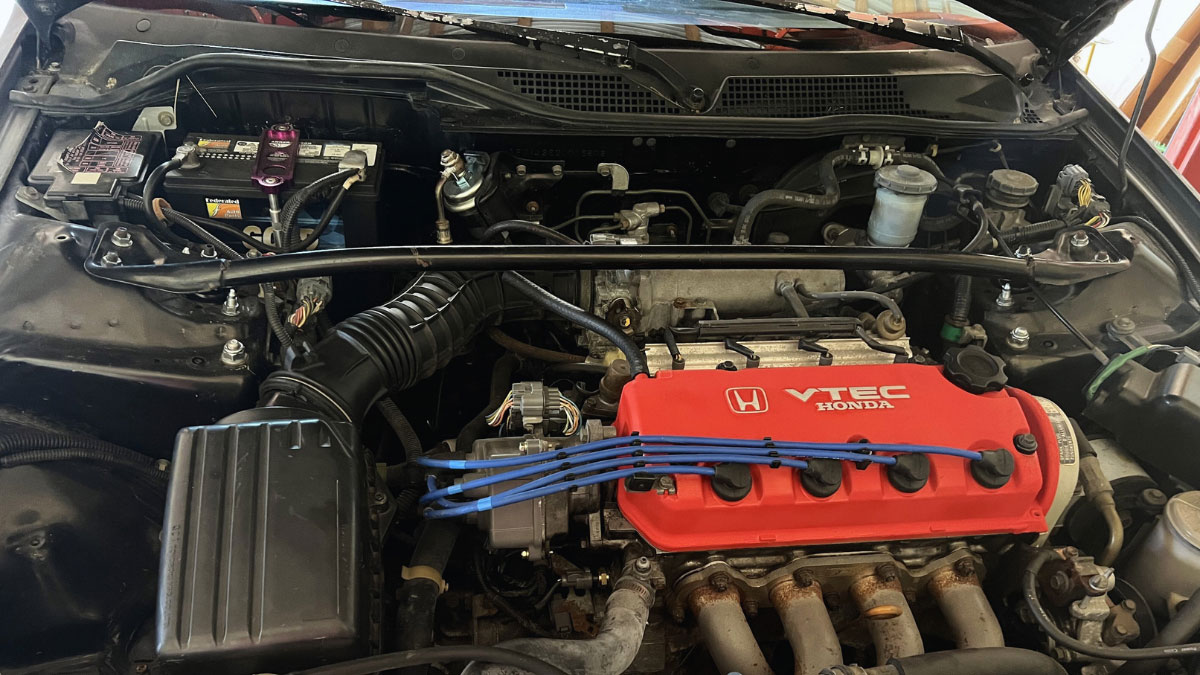Ever felt like your car is on a diet when you hit the gas pedal, giving you the slow-motion effect you never asked for? Well, buckle up because we’re diving into the quirky world of engines bogging down when you need them to step up their game. Picture this: you’re revving up for the ultimate road trip playlist jam, but your engine decides it’s time for a siesta instead. Oh, the audacity!
Common Reasons for Engine Bogging Down When Accelerating
When your engine decides to take an unexpected nap right when you need it to accelerate swiftly, it can be as frustrating as trying to have a conversation with a chatty squirrel. Let’s jump into the comical yet informative world of why engines choose the worst possible moment to bog down.

Fuel System Issues
Ah, fuel system issues, the mischievous gremlins of engine performance. These troublemakers can disrupt your acceleration faster than a cat deciding it’s time to knock things off a shelf for no apparent reason.
- Clogged Fuel Filter: Picture this: your engine is a thirsty plant, and a clogged fuel filter is like trying to water it through a tiny, blocked straw – not very effective, is it?
- Faulty Fuel Pump: It’s like having a personal butler with a bad memory – your fuel pump might forget to deliver the proper amount of fuel to keep your engine running smoothly.
Airflow Restrictions
Just like us needing a breath of fresh air, engines require proper airflow to perform at their best. Airflow restrictions can turn your engine’s acceleration into a sluggish crawl faster than a sloth going uphill.
- Dirty Air Filter: Imagine wearing a mask that hasn’t been changed in months – your engine feels the same way with a dirty air filter limiting its breathing capacity.
- Faulty Mass Airflow Sensor: Think of this sensor as your engine’s nose – when it’s faulty, your engine can’t sniff out the right amount of air for optimal performance.
Exhaust System Blockages
A clogged exhaust system is like telling your engine to exhale while holding its breath – it’s just not going to end well. These blockages can turn your smooth acceleration into a sputtering mess quicker than a sneeze caught in mid-air.
- Blocked Catalytic Converter: Your engine’s attempt to breathe freely is thwarted by a blocked catalytic converter, leaving it gasping for the open road.
- Exhaust Pipe Obstructions: It’s like trying to drink a milkshake through a coffee stirrer – your engine needs the freedom to exhale smoothly without any pesky obstructions in the exhaust pipe.
Diagnosing Acceleration Problems
When your engine starts acting up like a stubborn mule, it’s time to put on your detective cap and get to the bottom of your acceleration woes. Let’s jump into the telltale signs and quirky symptoms that can help us unearth the mysteries lurking under the hood.
Signs of Fuel Filter Clog
- Hiccups and Hitches: If your engine hesitates or jerks during acceleration, it might be throwing a tantrum because of a clogged fuel filter. It’s like trying to drink a thick milkshake through a tiny straw – not pleasant for anyone involved.
- Thirsty Engine: Is your car suddenly gulping down more fuel than usual? A clogged fuel filter could be making your engine work overtime just to get a sip of that precious gasoline. It’s like having a never-ending thirst on a hot summer day.
Symptoms of Air Intake Issues
- Wheezing Engine: Does your vehicle sound like it’s gasping for breath when you hit the gas pedal? It could be struggling due to issues in the air intake system. Imagine trying to run a marathon with a clothespin on your nose – not the most efficient way to go about it.
- Stuttering Acceleration: If your acceleration feels like a rollercoaster ride with unexpected stops and starts, your engine might be grappling with air intake problems. It’s like trying to speed up with a paper bag over your head – things are bound to get a bit chaotic.
- Growling Sounds: A noisy engine can indicate trouble brewing in the exhaust system. If your car starts growling like an angry bear during acceleration, it’s time to check for blockages or leaks. It’s like having a grumpy neighbor yelling at you every time you rev your engine.
- Lingering Smells: Unpleasant odors coming from your car could point to exhaust system issues. If you catch a whiff of something funky during acceleration, it’s best not to ignore it. It’s like driving around with a skunk in your trunk – definitely not the aroma you’re going for.
Solutions to Enhance Engine Performance
Let’s jump into solving these engine performance woes with some ingenious solutions. Buckle up; it’s time to revamp your ride!
Cleaning and Replacing Key Components
Ah, the joy of maintenance! It’s like giving your engine a spa day. Here’s the scoop on cleaning and replacing key components to keep your engine purring like a content kitten:
- Fuel Filter: Swap out that clogged filter; it’s like letting your engine breathe fresh air after being stuck in a stuffy room.
- Air Filters: Clean or replace those dirty filters; think of it as unclogging your nostrils so you can breathe freely again.
- Spark Plugs: Check and replace worn-out spark plugs; it’s like giving your engine a high-five to start the combustion party.
- Sensors: Ensure sensors are functioning correctly; it’s like having a sharp-eyed lookout spotting hurdles before you reach them.
Adjusting Fuel and Air Mixtures
Let’s play chemist with our engine’s fuel and air mixtures. Get your lab coat on; it’s time to find that perfect blend for optimum performance:
- Fuel Injection System: Fine-tune the fuel injection system; think of it as customizing your engine’s diet for peak performance.
- Oxygen Sensors: Check oxygen sensors for accuracy; it’s like having a personal trainer monitoring your breathing during a workout.
- Throttle Position Sensor: Calibrate the throttle position sensor; it’s akin to finding the sweet spot for smooth acceleration.
- Idle Air Control Valve: Adjust the idle air control valve; imagine it as your engine’s yoga instructor, helping it find balance at idle.
Maintenance Tips to Prevent Engine Lag
Ah, the dreaded engine lag – it’s like trying to sprint in quicksand! To keep your vehicle purring like a content kitten, here are some maintenance tips to prevent engine lag:
Top up the Tank Regularly
- Check your fuel levels – running on fumes is like running on empty stomach post-workout!
- Ensure a clean fuel supply by avoiding filling up at shady gas stations.
Get Airy with It
- Clean or replace your air filter – think of it as giving your engine a breath of fresh air.
Spark It Up
- Keep those spark plugs in top shape – they’re the life of the party in your engine!
Smooth Pipes for Smooth Rides
- Regularly inspect and clear any blockages in the exhaust system – think of it as decluttering your engine’s living space.
Don’t Skimp on Oil
- Regular oil changes are key to a happy engine – it’s like giving your car a soothing spa treatment.
Sensor-tional Care
- Treat your sensors right – they’re the eyes and ears of your engine, so keep ’em clean and calibrated.
- Consider a professional tune-up to keep everything running smoothly – it’s like a wellness checkup for your vehicle.
Conclusion
Well, folks, there you have it – the engine bogging down saga decoded! From fuel filter fiascos to air intake antics and exhaust escapades, it’s been quite the rollercoaster ride. Like trying to sip a milkshake through a straw that’s seen better days or running a marathon with a clothespin on your nose, engine woes can really throw a wrench in your acceleration plans. But fear not! With a bit of TLC, including filter clean-ups, spark plug swaps, and sensor snuggles, we can revitalize our engines and leave those acceleration issues in the dust. So, remember to keep those fuel tanks full, filters clean, and exhaust systems clear for smooth sailing on the road ahead. Here’s to happy engines and acceleration without the aggravation!
Frequently Asked Questions
Why is my engine bogging down when I accelerate?
Fuel system issues like clogged filters or faulty pumps can cause engine bogging down when accelerating. Insufficient fuel supply or bad fuel can also lead to this problem.
What can make my car feel sluggish during acceleration?
Dirty mass air flow sensor, faulty spark plugs, defective throttle position sensor, clogged catalytic converter, faulty oxygen sensor, clogged air filter, or fuel system malfunction can make your car feel sluggish during acceleration.
Which sensor can cause power loss in a vehicle?
A faulty Mass Airflow Sensor (MAF) can cause power loss by affecting air intake measurements. Cleaning or replacing the MAF sensor can often resolve this issue.
Why does my car rev but barely accelerate?
When the engine revs but the vehicle barely accelerates, it could indicate transmission slipping or not engaging gears correctly.
What causes power loss when I accelerate my car?
Causes of power loss during acceleration can include insufficient fuel, sensor issues, clogged air or fuel filters, or a faulty timing belt affecting engine performance.

